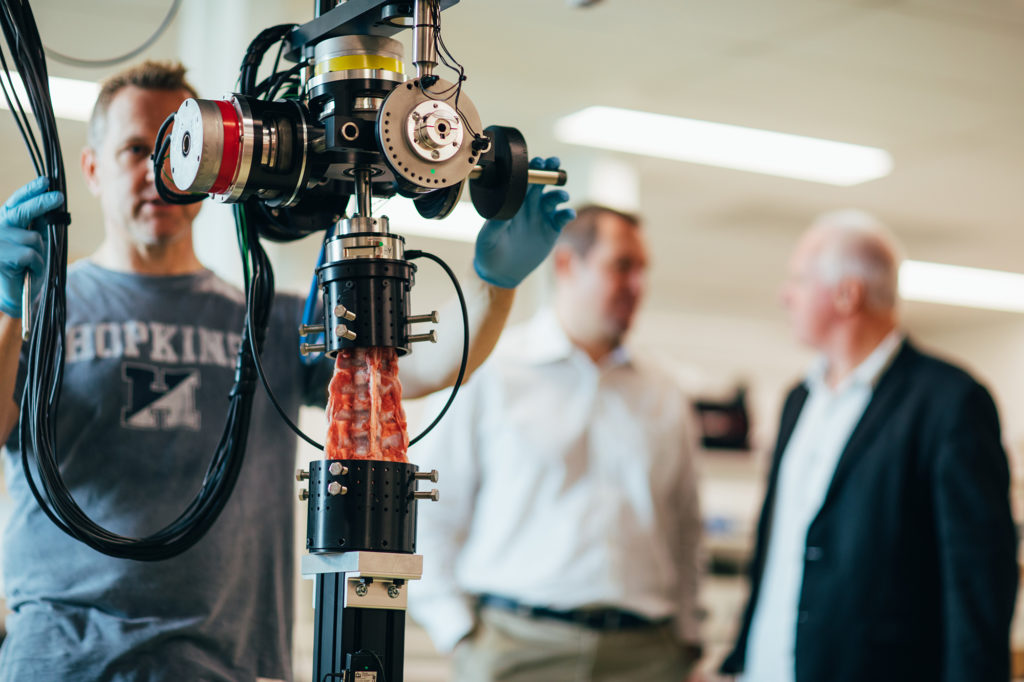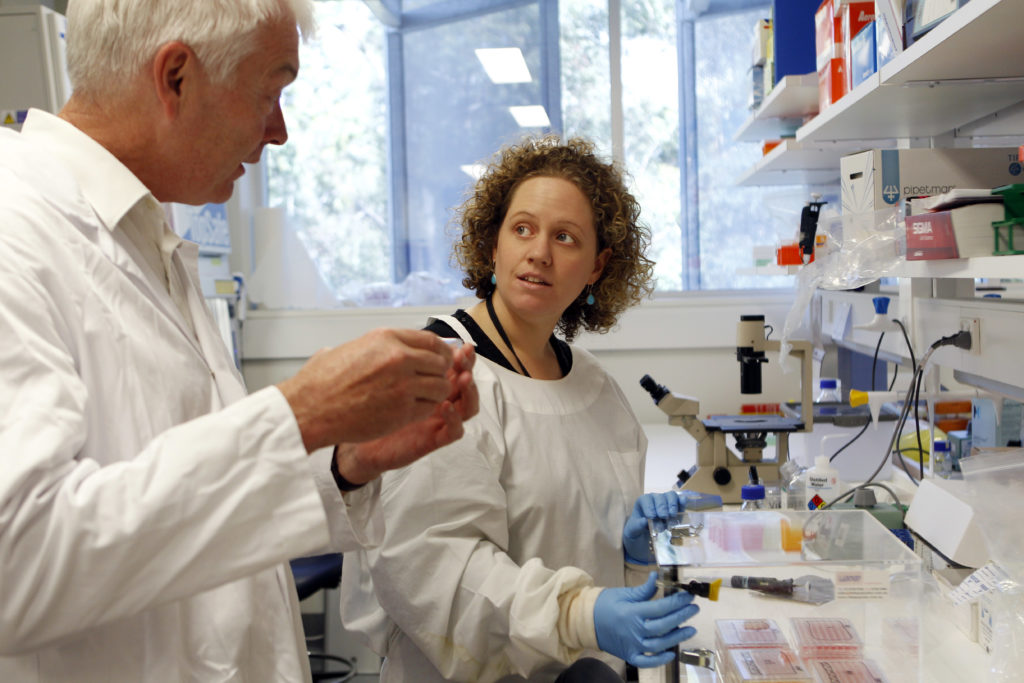ADaPT is pushing the boundaries of next-generation medical technologies to provide personalised surgeries, implants and devices, customised and intelligent neurorehabilitation for spinal cord injury and other conditions. Find out more.
Research, Innovation & Clinical Trials
Precinct researchers, clinicians and companies collaborate and innovate at the contemporary convergence of health, science and engineering, empowered by digital technology,
This multidisciplinary approach positions the GCHKP to deliver next-generation medicine and advanced manufacturing, and comprehensive innovation in preventative and digital health care.
Personalised medicine
A brave new world
Leading-edge micro and nanoscience, together with 3D printing technology, supports the development of groundbreaking biomedical devices, implants and diagnostic tools in a brave new world of personalised medicine.
The latest in medical imaging technology combines with big data to enable biomechanical engineers to personalise training, prevent injury, design rehabilitation and model orthopaedic surgery. The ‘personalised digital human’ or ‘digital twin’ is fast moving from dream to reality.
Advanced Medtech
Glycomics
A new frontier
Biomedical researchers on the drug discovery frontier of Glycomics hope to wipe out the global scourge of malaria. Full human clinical trials of a promising vaccine are set to commence after a pilot human study proved safe and successful.
With a range of infectious diseases and cancers firmly in their sights, the GCHKP’s world-leading Institute of Glycomics currently has two drug and two vaccine technologies in clinical trials.
Leading the way in clinical trials
Leading the way in clinical trials for neurological devices, clinicians pioneer life-saving procedures to pull blood clots out of stroke patient’s brains, from the inside out, and treat deadly brain aneurisms. Our experts perform world-first robotic surgery trials and collaborate with leading medical device companies.
They’re also collaborating with 3D printing specialists to develop surgical models to train specialists from around the world.
Beyond chronic disease and injury
New hope
A team of researchers is preparing for future clinical trials that combine 3D spinal regenerative cell therapy with specialised high-tech ‘thought control’ rehabilitation to repair spinal cord damage, giving hope for paraplegics and quadriplegics.
Others GCHKP researchers are closing in on a method of accurately diagnosing Chronic Fatigue Syndrome as they advance treatments for the debilitating condition.
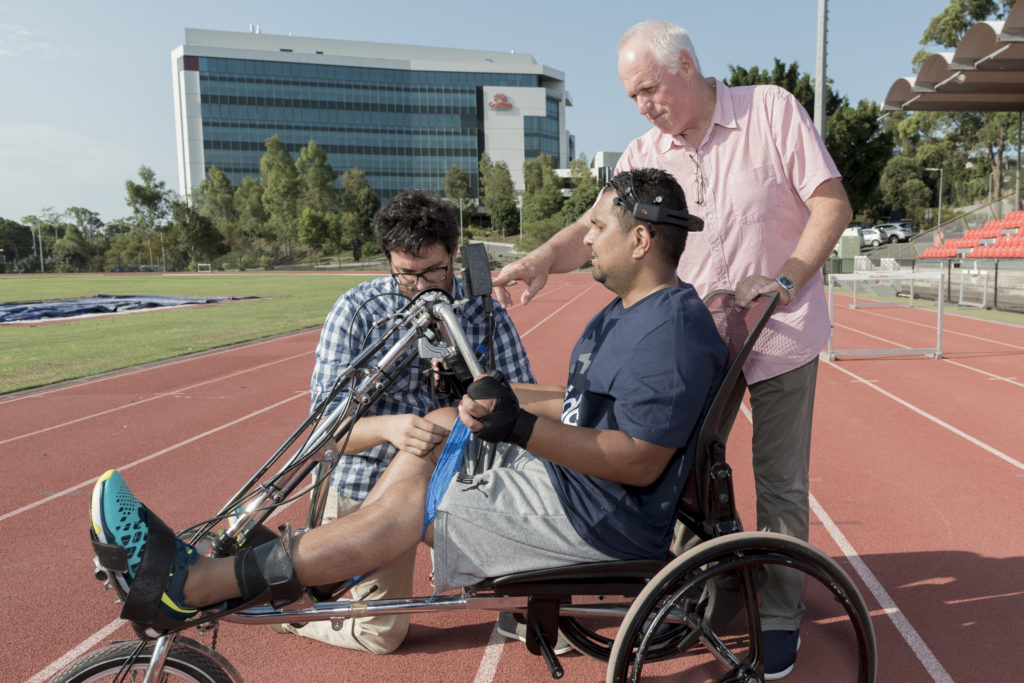
Beyond Innovation
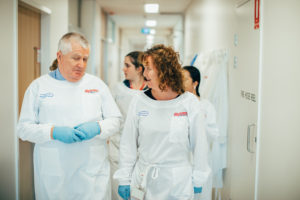
Our world-class people
The GCHKP boasts more than 1,000 researchers and 700 research students, along with internationally regarded clinicians and global companies operating in innovative partnerships with researchers and clinicians.
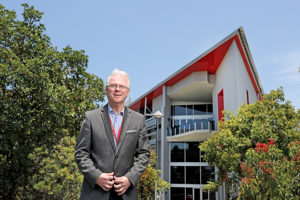
Research Centres & Institutes
The Precinct is home to a number of leading research institutes, spanning life sciences, health, environmental research and urban planning, ICT, advanced manufacturing, engineering and micro and nanotechnology.

Clinical Trials
Clinical trials span new drugs and vaccines to therapeutic treatments and medical and diagnostic devices. Trials are conducted at Griffith University, Gold Coast University Hospital, Gold Coast Private Hospital, and in collaboration with commercial partners.
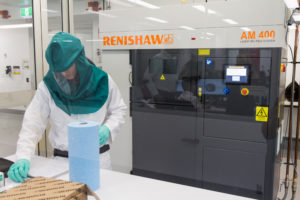
Projects
We're developing new research and industry collaboration facilities, including Griffith's Advanced Design and Prototyping Technologies Institute (ADaPT), an integrated child health, development and research facility (Proxima) and a digital innovation hub exploring AI in healthcare.
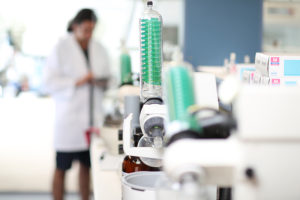
Equipment & Facilities
Our research and testing facilities span clinical and biomedical laboratories, industrial and engineering labs, specialised micro and nanotechnology clean rooms and advanced 3D printing and design laboratories, including a titanium (medical grade) 3D printer.
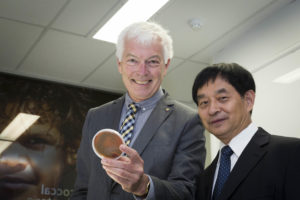
Commercial partnerships
Researchers and clinicians are commercially focused, with collaborations ranging from joint-grant projects to lead roles in multi-site clinical trials and major commercial licensing deals.
World's largest commercial glycan array

